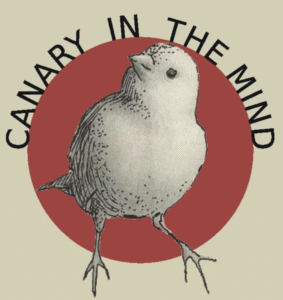Begin in the Dark
Begin in the Dark
I came back to my house in Slavonice after being locked out for two years due to government restrictions. After arriving, I learned that the government had again closed down their borders and I was in official lock-down.
The garden is gone, my friends are gone, and it is dark in the courtyard.
But I have always loved the solstice because it is when the light comes back into the world. It happens the day before my birthday and three days before Christmas. In the darkest of the dark, there is this brilliant flash of light as our planet turns toward the sun.
It has always been acknowledged that new cycles begin in the dark, like the new moon. In alchemy, the dark is the black prime matter out of which transformation will manifest.
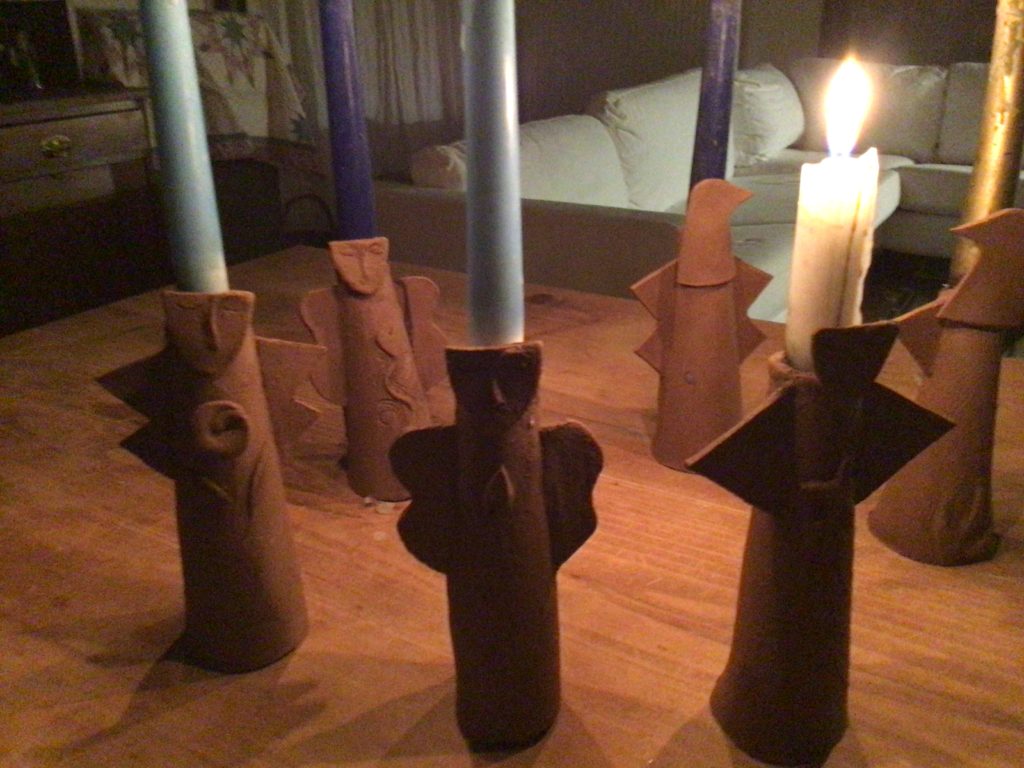
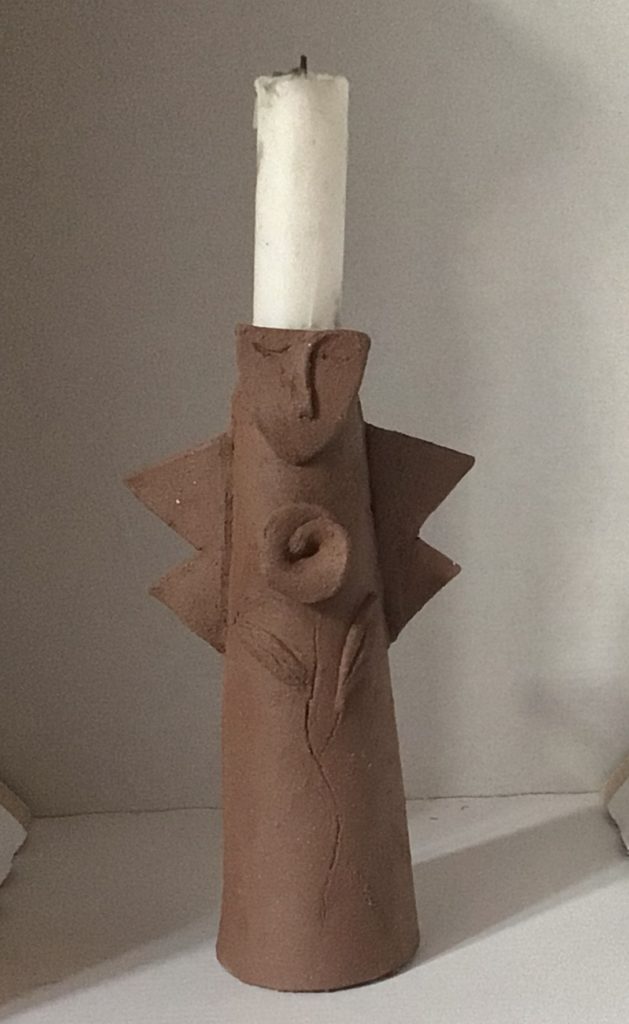
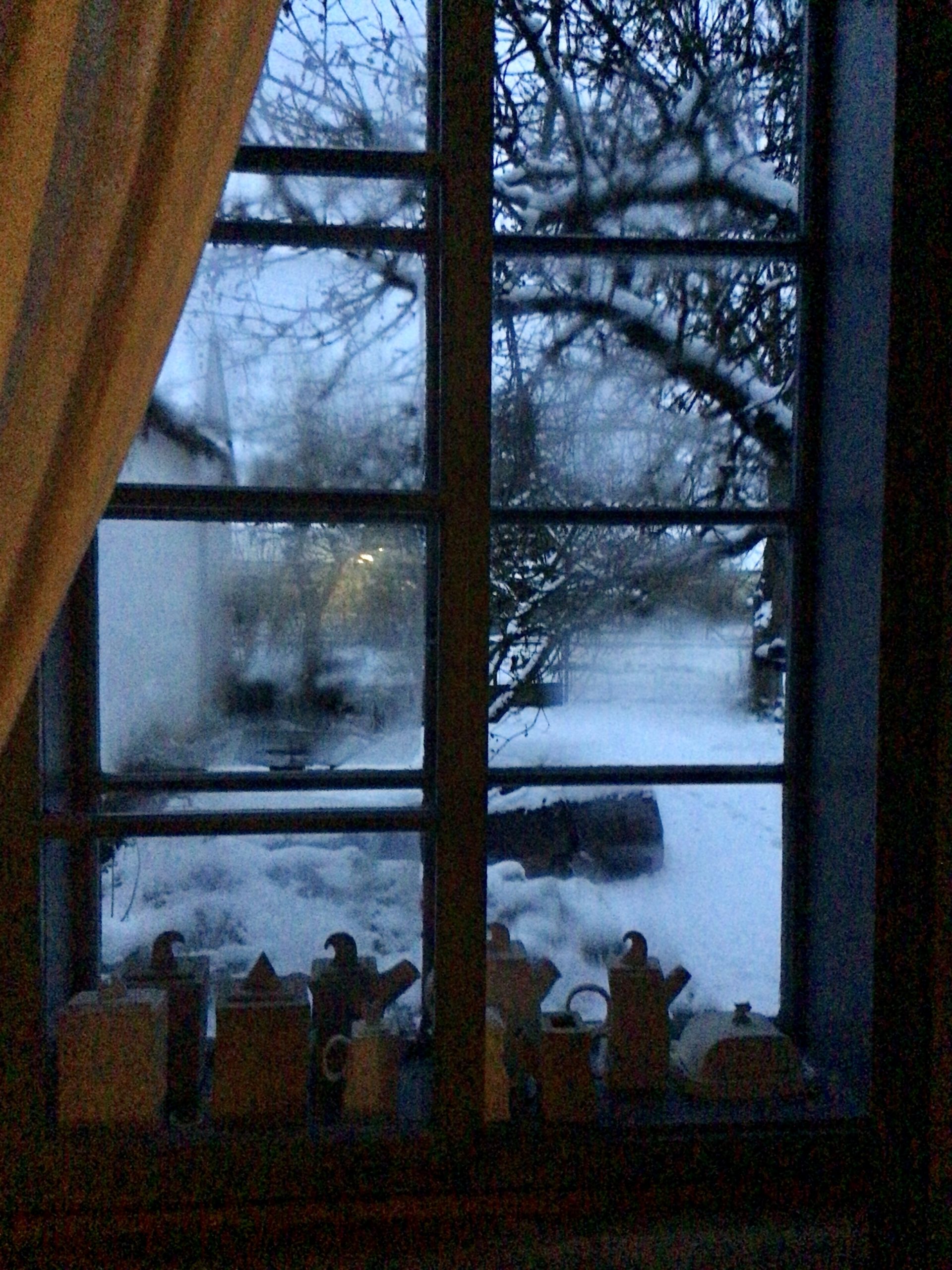
The inspiration for the Red Canary website came from my friend Karen Ercolino, who had her own blog several years ago where she featured her garden as the central site for her permaculture projects. We have recently spoken and decided to share posts with each other. Karen lives in Prague where it is not as cold as it is here. When I telephoned, she was busy sawing up plastic water containers to place over her kale plants. It is warmer in Prague where she has her garden. Everything in my garden is dead as a doornail so my projects are going to be cultural artifacts.
Karen's Garden in Prague

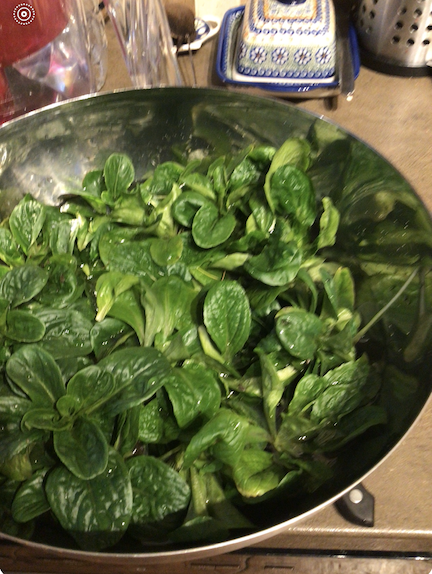

My contributions to permaculture
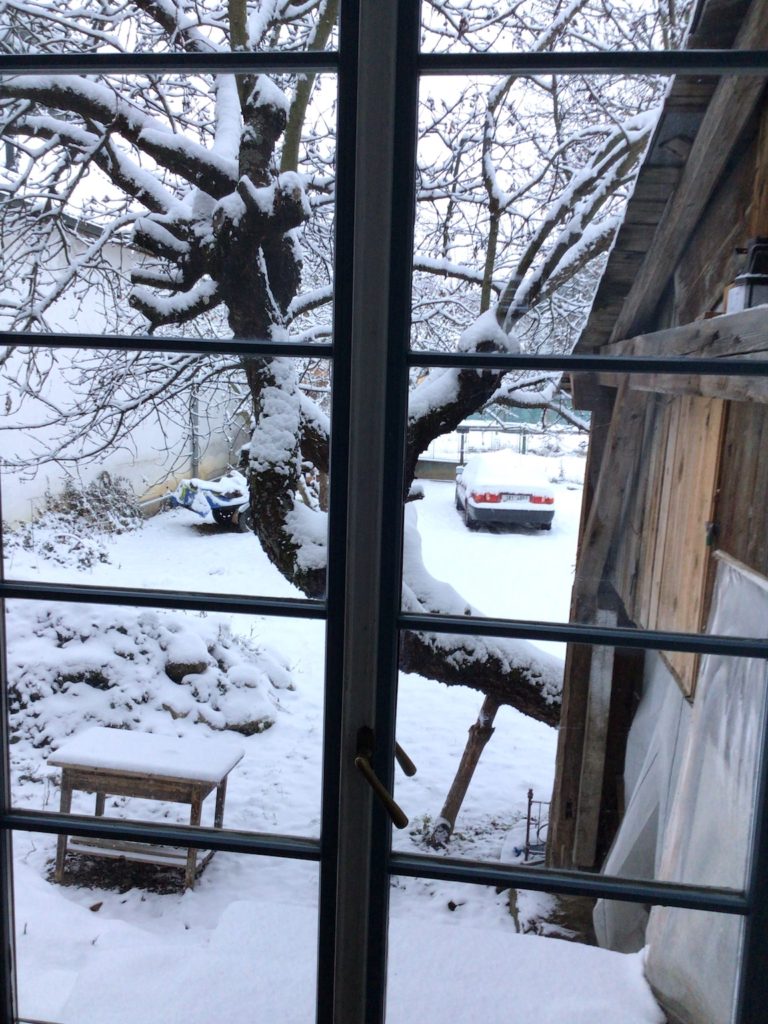
It is commonplace for people to dismiss observations based on intuitive or imaginative models of the world, as less useful than “fact-based” information that is rational and measurable. I maintain that although the day to day waking world may be organized by our reason, the underlying events of our lives are structured by myth; and to know where we are within our own story and within the collective story, we need to understand mythology.
The mythology of the Solstice is something we have in common with all the people of the past. The Solstice represents a common experience for all humans in all times. We celebrate and facilitate light coming back, creating the world anew.
Now the question is: how do I help facilitate light coming back into the world with my intentions?
The global crisis we are in is far more than a medical emergency, but a conflict over the dream we wish to dream. We have no consensus on what is true or what is real. To find common goals, Karen Ercolino suggested we do “deep mapping.” This is is the practice of studying the patterns of cultures in the past, going back to the ice-age. We should look at our problems from more than one perspective.
What created group consensus in the past, and how can we forge new agreements on what is real? Our deepest values are at stake.
Post Script
Now, writing in April of 2023, I did not know that the solstice documented here would be the last one I would spend in my house. I have refused the Covid vaccination so I cannot get long term residency. I cannot afford to commute every three months with a tourist passport.
I’ve come back to this page to add the images of the mural I painted in the bathroom that Christmas. I was going to add the snake goddess on the other side of the door, but my friend Marcela said it was bad feng shui to put God above the toilet, which I thought was a good point. So the stately figures just keep walking into the opposite wall.
A wonderful woman moved into the house after I left and it was comforting to me that had I known her earlier, we would have been friends.
This little house was my first conscious effort to create my own home and qualifies as a permaculture project. The beams over the kitchen are 8 hundred years old, and many layers of brick and stone were plastered over to create the walls–which you can tell by the photos, are several feet thick.
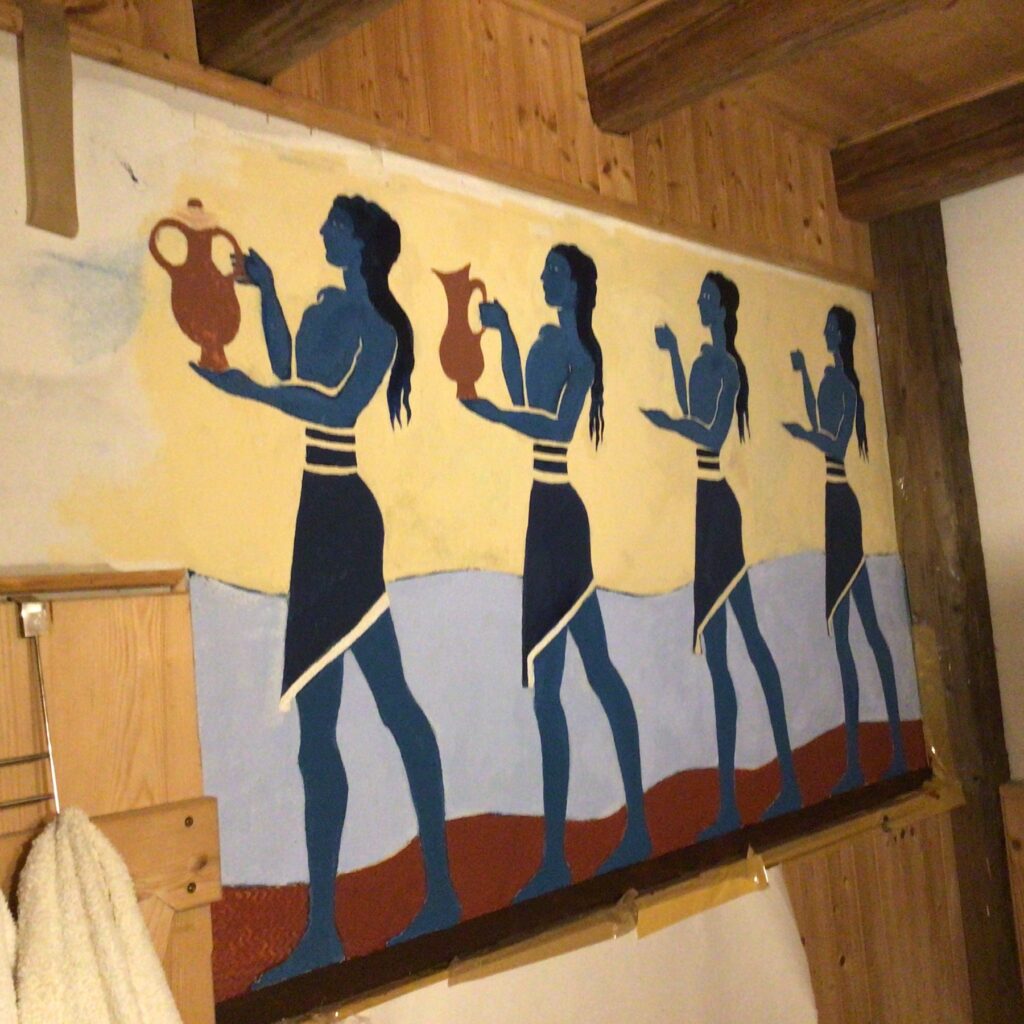
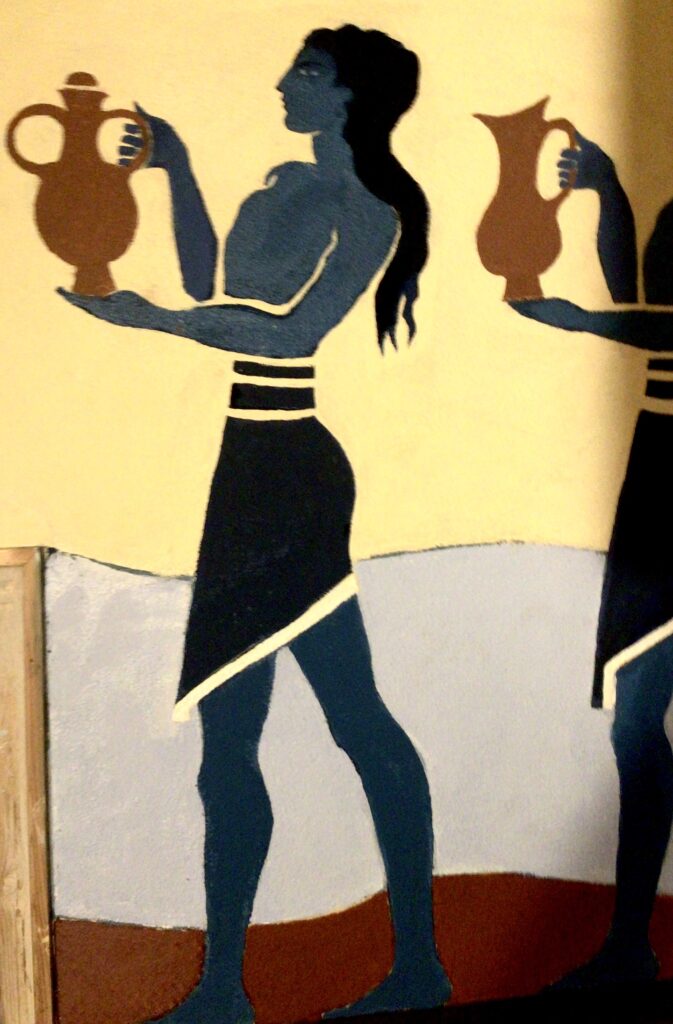

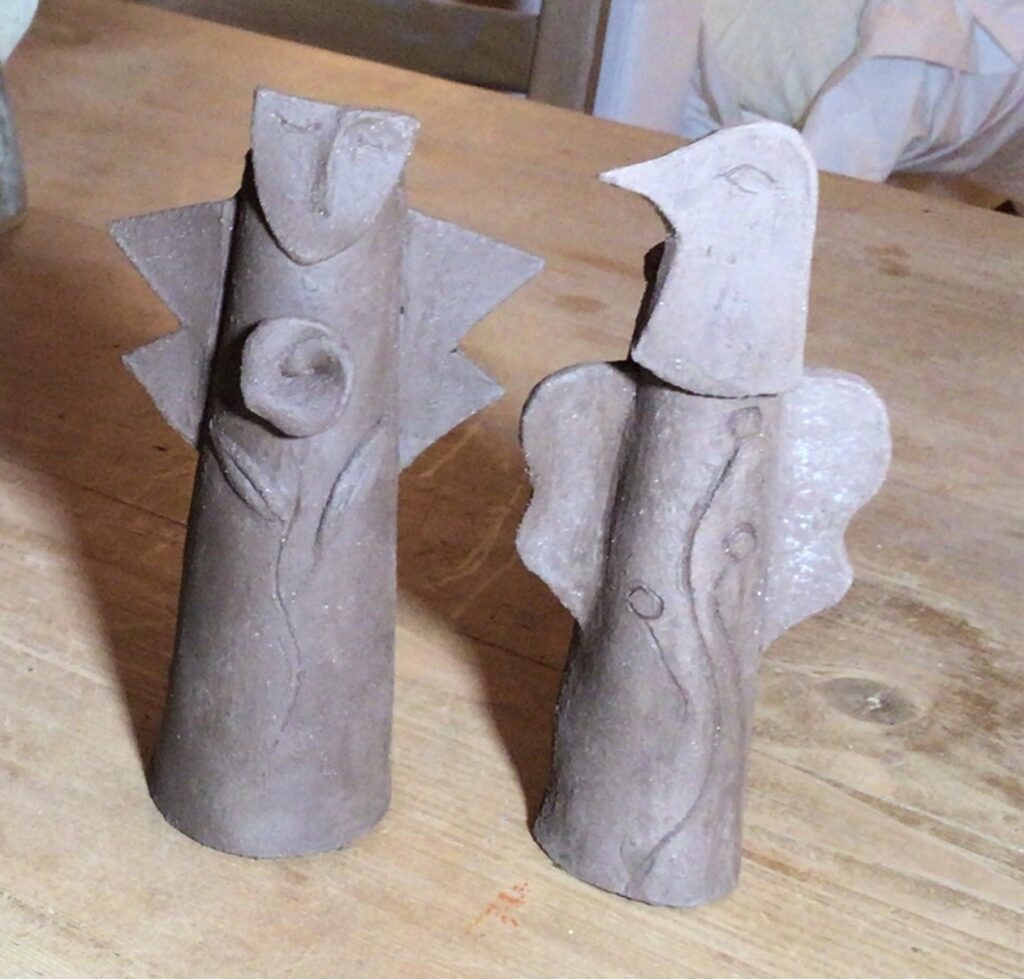
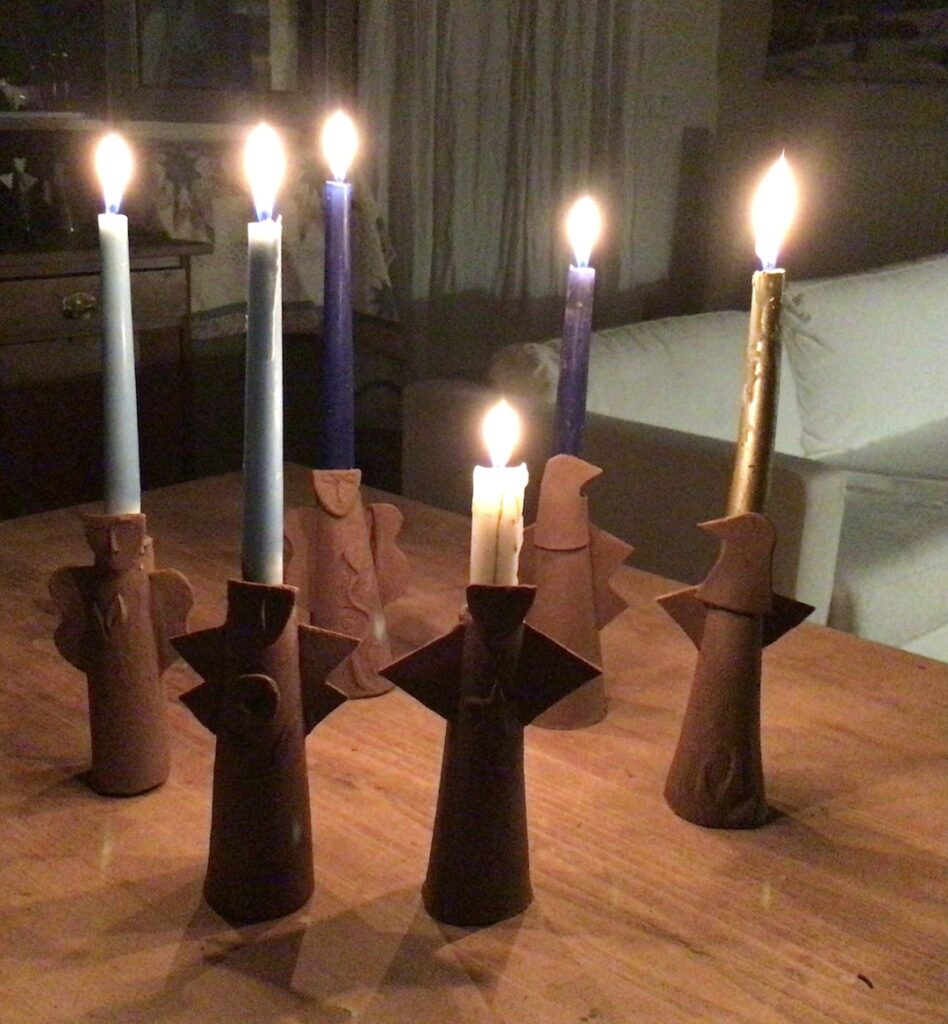


Deep Mapping
Slavonice is a place where deep mapping (as Karen suggested for our permaculture projects) is not difficult to do. The centuries are all represented there and their treasures somewhat protected for the past several generations by the iron curtain that halted all development in this part of the world.
The north side of my house had been part of the old city wall. The feeling of being in that house, grounded in so many centuries and built of thick stone, feels so very different than the pre-fab wood structures that form my living space now.
I find the contrast between Idaho and Slavonice interesting from a permaculture point of view. The old crafts are alive in Southern Bohemia, not so much in Idaho. But that which sustains life is not only made of things, but is based on a story; a story that contains certain values and beliefs. The country people of Moravia/Bohemia have more in common with the people here than one might expect.

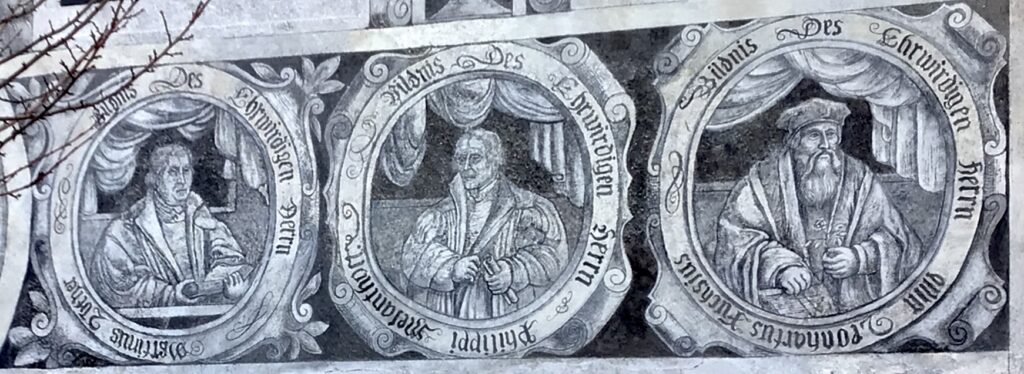
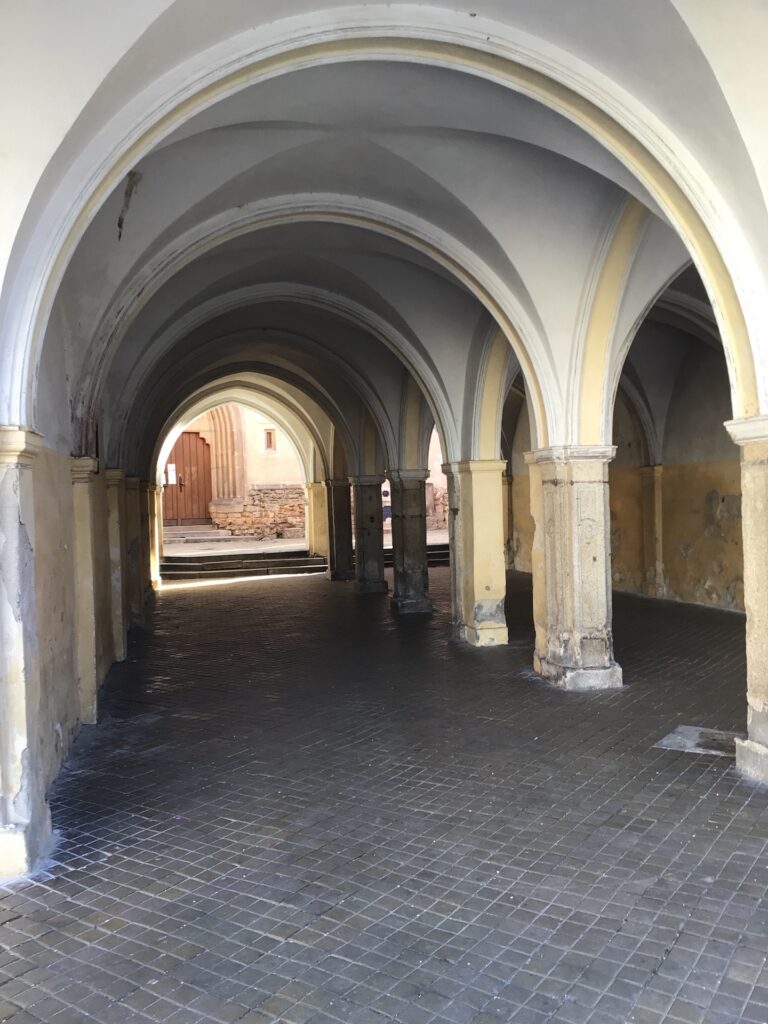
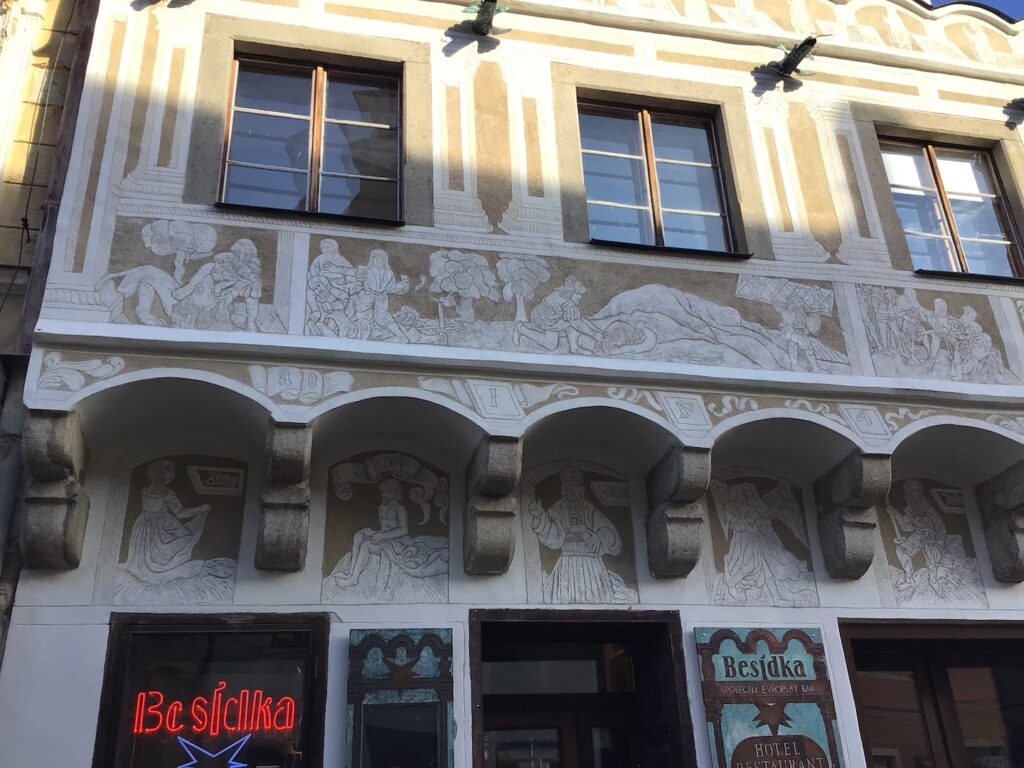
A Brief History and definition of Permaculture
After intense research (lasting about twenty minutes) I found these salient quotes on the internet as a beginning for discussion to follow.
“Permaculture is a way of thinking. It is a set of principles taken from nature and applied to our everyday lives. Permaculture aims to design sustainable communities in line with nature’s principles. “ http://thecarrotrevolution.com/permaculture-principles/
“The concept of permaculture has gained significant traction in the last two decades and has culminated into what could be called a global movement. What lies at the heart of the permaculture movement is the understanding that there is something fundamentally wrong with the way that we, the human species, see and interact with our planet and our fellow humans. Permaculture offers the promise of an alternative approach to living, one that is aligned with the wellbeing of our planet and all its inhabitants – a new way to conceptualize and relate to the world.” https://thepermaculturecollective.com/part-1-history-of-permaculture/
Bill Mollison, who first coined the term, permaculture, said: “As I saw permaculture in the 1970s, it was a beneficial assembly of plants and animals in relation to human settlements, mostly aimed towards household and community self-reliance, and perhaps as a “commercial endeavor” only arising from a surplus from that system. However, permaculture has come to mean more than just food-sufficiency in the household. Self-reliance in food is meaningless unless people have access to land, information, and financial resources. So in recent years it has come to encompass appropriate legal and financial strategies, including strategies for land access, business structures, and regional self-financing. This way it is a whole human system.”
